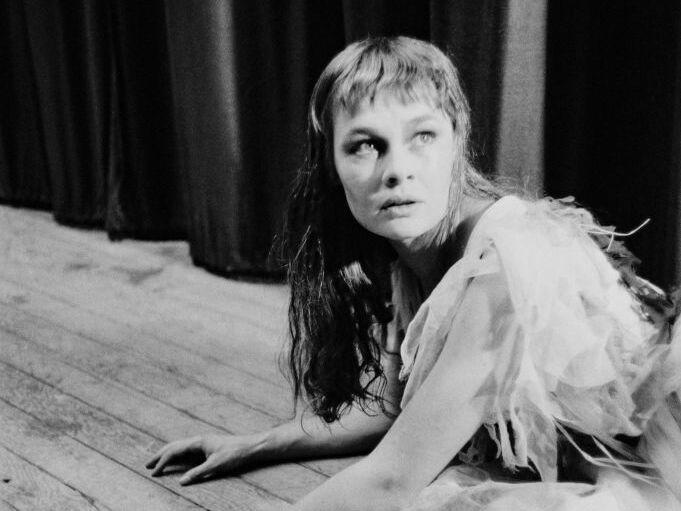Section Branding
Header Content
Judi Dench reflects on a career built around Shakespeare
Primary Content
You're reading the Consider This newsletter, which unpacks one major news story each day. Subscribe here to get it delivered to your inbox, and listen to more from the Consider This podcast.
1. Judi Dench built a career around Shakespeare's work.
Dench shone in several Shakespeare roles, from star-crossed lover Juliet, to the tragic Lady Macbeth, to the comical Titania in A Midsummer Night's Dream. Now at 89, she says the roles and lines have stuck with her.
"It's the only thing I can remember. I can't remember where I put my shirt yesterday or a pair of shoes. I can't remember what's happening tomorrow, and I can't remember what happened last week. Sonnets and Shakespeare I can remember... Something to do with the fact that the way he writes is like the beat of your heart."
She reflects on all her roles in the new book Shakespeare: The Man Who Pays The Rent. It chronicles a series of conversations over four years between Dench and her friend, the actor and director Brendan O'Hea.
2. Writing this novel helped both of them during COVID lockdowns.
O'Hea said he considered another title for the book – Herding Eels – because it was so hard to get Dench to talk about her craft. But working on it together during the pandemic really helped, because they were able to just focus and go through all the plays.
"I'd have to say, 'Well, look. There's some Butterkists in the other room, or there's a glass of champagne waiting for you. Let's just do five minutes.' I know your game, she'd say. So, yeah, it took a lot of coaxing. She's very, very slippery... But we got there in the end."
Dench has also been struggling with deteriorating eyesight, which has limited her ability to take on new roles.
"I never had realized that I need to know exactly where a speech is on a page and in relation to the other speeches," Dench said. "Well, of course, I can't do that. I can be taught a part, but I have to know actually where it sits. And that's impossible now."
For Dench, putting together this book was a savior during a particularly difficult time. "So it's not only saved our life during COVID but saved mine during this time when I can't say yes to a part because I can't see it... There are pluses to be had though, if you look for them."
3. Dench and O'Hea believe Shakespeare is still relevant.
O'Hea points to how Shakespeare's work is embedded in the English language. "You know, we didn't know the word 'assassination' until Shakespeare coined it. And there's the whole raft of other words and phrases that Shakespeare came up with."
And for Dench, nobody has written about the human experience quite like Shakespeare. "The whole raft of human feelings — about love, about envy, about idolatry, about sadness, about death, about the afterlife — there's nobody who has written like that and who still remains with us in our, as I say, everyday expressions."
Part of the beauty in it to Dench, is that there's no right way of doing Shakespeare.
"Somebody who has been in love for the first time — they may not have been in love the way that Juliet is in love. But nevertheless, they understand the emotion. And Shakespeare was able to distill that."
For sponsor-free episodes of Consider This, sign up for Consider This+ via Apple Podcasts or at plus.npr.org. Email us at considerthis@npr.org.

